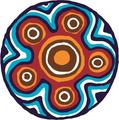Year 8 Term 2 Overviews

English
During Term Two, Year 8 students will explore the text ‘Crow Country’, by Kate Constable. During discussions of this text, students will explore the notion of racism within contemporary society, whilst also drawing attention to Indigenous Australians' connection to land and self belonging. Throughout this text exploration, students will determine aspects of an individual writer's style and how it contributes to the overall meaning of the text, e.g. use of language, choice of topic, expression of ideas, use of language features and vocabulary used to infer the writer's perspective. Students will continue to work as part of collaborative Lit Circle groups during English blocks, where they will implement a variety of different learning styles such as independent prompted writing, group exploration and whole class discussion. It is a DDC requirement that students have access to this text via a hard copy book or laptop. If your child does not have access to this text, please contact your child’s English teacher as soon as possible.
Humanities
This term students are continuing to explore the connectedness humans have with the earth. They will dig deeper by explaining natural disasters and creating graphic representations to show the distribution of landforms geomorphological hazards. This will culminate in students list ways humans can mitigate, prepare for and prevent land based natural disasters. They will be able to argue and justify why humans should minimise their impact on Earth and propose ways to do this. While completing their geography unit, we will start our Justice and People unit. In this politics/law themed unit students will analyse equality, fairness and access to the Australian constitution and how these relate to the right to a fair trial and legal representation. Students will learn about how their voice can influence Australian democracy on an excursion to the Royal Treasury building. By the end of the unit, students will be able to describe the types of Australian law such as common, statutory, executive and customary law and explain the separation of powers.
Health
In Term 2 the Health focus of the Year 8 cohort will relate to Adolescence & Change; within this unit, teaching content and activities will be heavily derived from The Respectful Relationships (RR) curriculum, a Department of Education supported document which encompasses the teaching of Social and Emotional Learning and Respectful Relationships. The Respectful Relationships (RR) curriculum and resources are derived from an evidence basis and is highlighted in our Victorian Curriculum which we are mandated to teach and report on. It is part of a national strategy and a key recommendation from the Royal Commission into Family Violence. Learning around respect occurs in all states and territories of Australia through the Respectful Relationships or Respect Matters models. The RR pilot began in 2014 in Victorian schools and the evidence from this pilot shows increased positive mental health outcomes for students and the development of important understandings, skills and dispositions related to respect.
Maths
This term in maths, students will be consolidating their knowledge of 12 and 24 hour time systems and using both to solve a variety of duration problems across one time zone. Following this short unit, students will move back into the space of number and algebra, specifically exploring linear relationships. In this unit students will recall their understanding of proportional reasoning to connect to rates as a type of ratio. Students will solve rate problems and associate the equivalent ratios as a linear relationship on a cartesian plane. These new concepts and skills will be connected back to their understanding of linear expressions and students will solve linear equations algebraically and graphically. Students will then use this understanding to explore and understand non-linear relationships using real life data. Following these units, new learning will be paused as students revise and consolidate all their learning from this year in preparation for their mid-year exam towards the end of this term. After exams students will finish the term with a unit focused on the congruence of shape, where they will use transformations of congruent shapes to produce tessellations in a plane.
Science
In this term, the Year 8 students will explore a range of scientific concepts and skills in the physical and chemical science fields. In the first phase of the term, the guiding question for the students to investigate will be the behaviour of light and understanding how it can form images. Students will engage in experiments to observe the reflection and refraction of light using curved mirrors and lenses. They will learn how to set up experimental apparatus, make accurate observations, and draw conclusions based on their findings. Students will develop their ability to communicate scientific concepts of light, image formation, and radiation spectrum using appropriate terminology, graphical representations, and written explanations.
In the second phase of the term, Year 8 students will focus on understanding the differences between elements, compounds, and mixtures through the lens of a particle model. They will explore the fundamental properties of these substances and how their particles interact and behave. Through designing their investigations, and scientific discussions, students will develop a deeper understanding of the concepts to solve current problems of the society associated with these fields.
Technologies
Students will be exploring The Scratch coding curriculum in digital technologies this term. They will develop the ability to create simple visual programs using Scratch, a block-based programming language. The sequence of lessons will develop students' understanding of algorithms and computational thinking by creating interactive digital solutions. Students will learn to design, modify, and follow algorithms using diagrammatic and English representations. Students will develop computational thinking skills, including problem decomposition, pattern recognition, and algorithmic thinking. In Design Technologies, students will explore the field of business design. Students will learn to employ design skills using science, mathematics and technology knowledge to solve critical business challenges. Students will aim to generate new solutions to known problems and then design ecosystems that deliver and capture value for your organisation and society. Students will develop entrepreneurship skills and the characteristics of an entrepreneur as they understand how to identify business opportunities by understanding markets and customers and the operational aspects of running a small business. Students will understand how personal choices affect financial circumstances, which impact lifestyle. Students will increase their financial knowledge so they can manage financial decisions. By the end of the term, students will be able to develop and advertise their business idea locally to extend it at regional, national and global levels in later stages.
